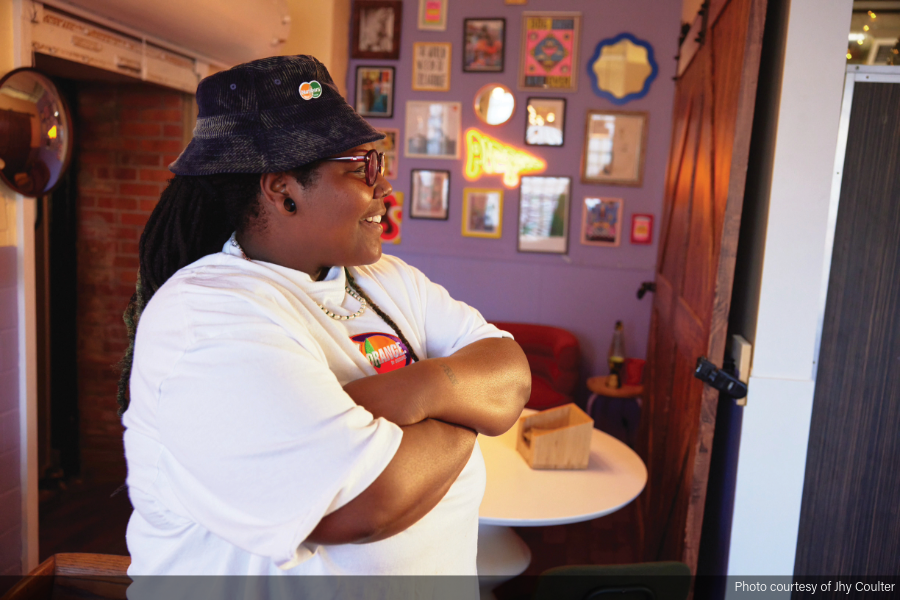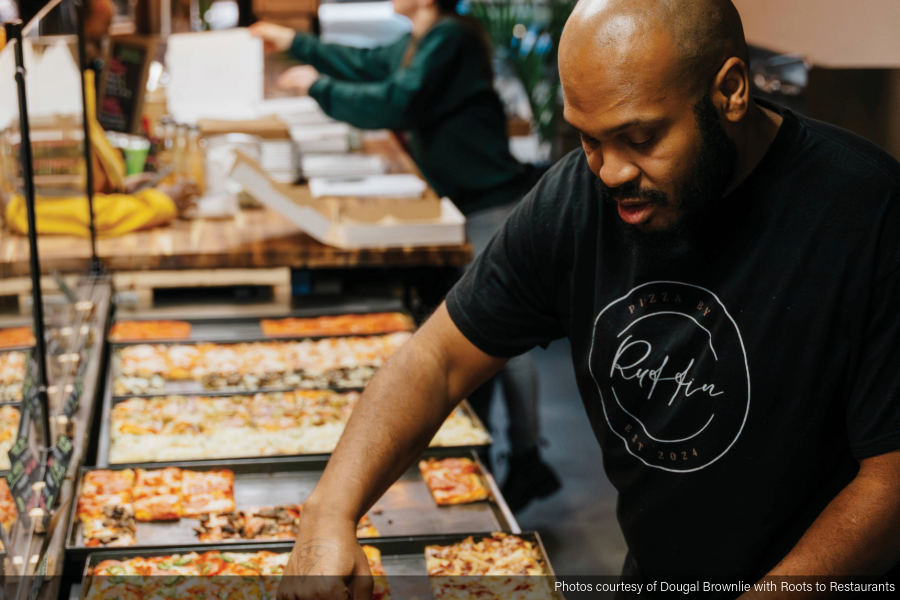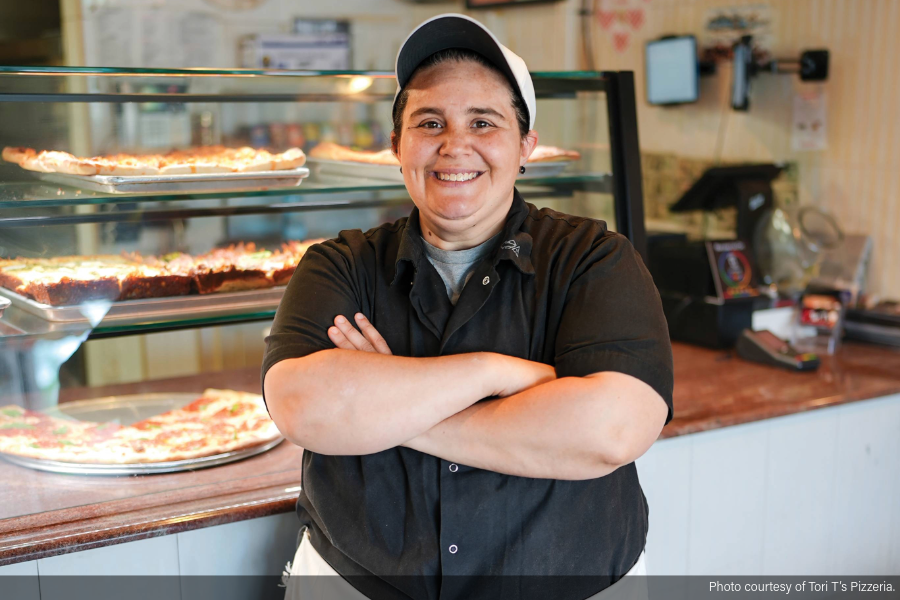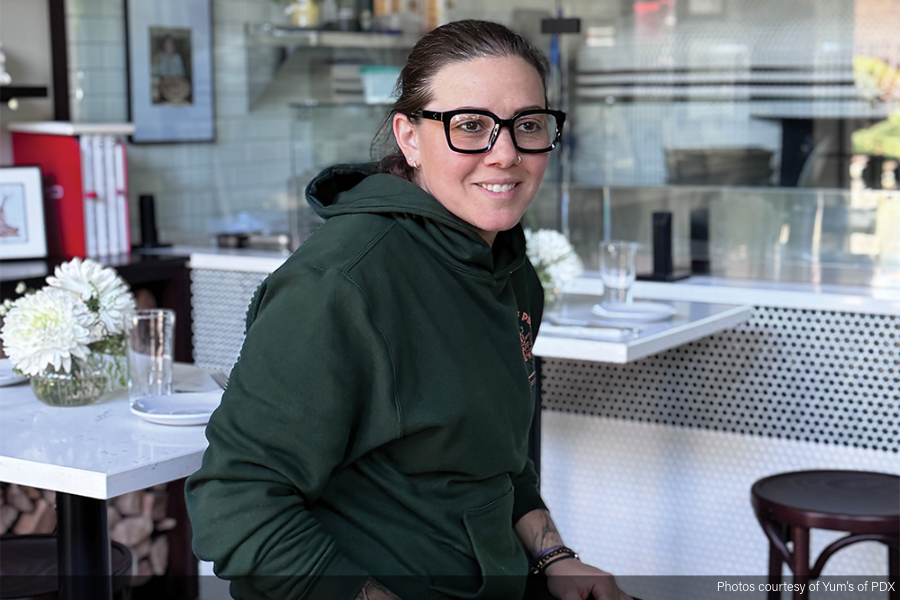 Pizza Antica was not selling much bottled mineral water. The servers at the four-unit concept, part of the Bacchus Management Group of restaurants in San Francisco, were not even mentioning bottled water to customers. So Pizza Antica launched the Bottled Mineral Water Sales contest. The winning server was taken, as guest, to one of Bacchus Management’s fine dining restaurants.
Pizza Antica was not selling much bottled mineral water. The servers at the four-unit concept, part of the Bacchus Management Group of restaurants in San Francisco, were not even mentioning bottled water to customers. So Pizza Antica launched the Bottled Mineral Water Sales contest. The winning server was taken, as guest, to one of Bacchus Management’s fine dining restaurants.
“The server could observe the refinement of the service there,” says Robert Smith, director of operations for Pizza Antica. “This had a great impact on why to suggest certain items.”
The free dinner didn’t hurt. Offering free food and other incentives can help motivate employees to sell more add-ons. Pizza Antica also held a dessert upselling contest, and the winner received a free dinner after their shift. The restaurant used the point-of-sale system to track the items sold. “I find it best to set up a spreadsheet with all participants, which is updated daily with the individual’s performance and posted near the staff schedule,” Smith says. “This creates friendly competition, which in turn creates the best motivation.”
Friendly competition does indeed motivate, says Bridget Keeler, manager of marketing and public relations for Whitewater, Wisconsin-based Toppers Pizza. The 50-unit chain holds quarterly sales contests. Recently the competition centered on which store could sell the most two-liter bottles of soda, as a percentage of sales. Before the contest began, Toppers Pizza sent posters to the stores to generate interest and to explain the contest.
Every week the corporate office e-mailed the current rankings to each store. “The stores liked seeing the results,” Keeler says. “If the list was not out by Tuesday we would hear from them.”
The winning store sold two-liter bottles that totaled approximately three percent of sales, and the store won a $75 gift card to Amazon. Year-end grand prizes include a $500 Amazon gift card. Keeler says the store manager could use the card to purchase a personal item, something for the store, or t-shirts or other prizes for employees. Other prizes have included Live Nation dollars that stores used to buy concert tickets.
Keeler says it helps if the upsold item adds dollars to the sale without much labor. For another promotion, staff had to encourage customers to order extra cheese. The prize, shoes in Toppers colors of red and gold, were a big hit. “Everyone wanted those shoes,” Keeler says. “Employees were getting customers to add cheese to everything, even wings.”
Todd Ordal, a Denver-based certified management consultant, says small prizes can be good rewards for employees, but the operator needs to be strategic about motivators. “Changing behavior is hard,” Ordal says. “To get it to stick you have to get people to buy into this long term. There has to be some sense of pride and value.”
Customers can tell when a server is simply reciting a sales script. The process is more effective if the staffer actually tasted the item, and, even better, they perceive that they are participating in the success of the restaurant.
Or, as Cody Pierce, vice president of marketing for Orange City, Iowa-based Pizza Ranch puts it: “You have to decide strategically what is important to you as an organization and what are the metrics you measure, and how you incentivize around those metrics.”
The 175-location Pizza Ranch offers buffet meals, so it’s up to the phone attendants and to-go staff to suggest add-ons such as Ranch Stix breadsticks, Cactus Bread for dessert, or new items such as freshly made coleslaw. The incentive program compares a store’s rate of upsells to the previous year. The managers from the winning stores earn Disney Dollars, which they can spend at Pizza Ranch’s 30th anniversary meeting at Disney World in June. “It is tied to the restaurant, not to the person,” Pierce says. “We are leaving it up to the restaurants how they distribute the Disney Dollars.”
Other chains also let individual units decide how to incentivize employees. Scott Bauer, a Papa Murphy’s franchisee in Chico, California, says in addition to the official corporate-wide incentive programs, he provides informal awards to managers and crews at his five locations. The add-ons include Cheesy Bread, chocolate chip cookie dough, Cinnamon Wheels and salads. Phone and counter staff are instructed to suggestively sell an add-on that makes sense. “If the customer ordered cookie dough, you don’t offer a Cinnamon Wheel because they already ordered dessert. You say, ‘Would you like a salad?’” Bauer says.
Bauer gives managers bonuses, which they see in their paychecks. To reward crew members, Bauer buys candy, almonds and other snacks and distributes them to the stores. “The crew member comes in and the manager says, ‘Hey you met your goal, go through the box and pick out something,’” Bauer says.
He occasionally buys gift cards too, and keeps the whole program casual. “If you make it too hardcore and technical and they miss their goals, they will give up,” he says.
Pizza Antica’s Smith says it’s important to make workers feel good about upselling. He says: “The key is to show the progress of who is performing well and use it playfully to incentivize others to perform well. Like any good management technique, this is about really celebrating great performance rather than belittling poor performance.”
Survey Says
To get customers to fill out surveys, operators have to turn to their servers. Some operators offer incentives such as movie tickets and gift cards to the staffer who gets the most tables to fill out a comment card or complete a survey. The actual feedback is as important as the number of surveys, so some operators give incentives to servers who score well on the surveys. Newton, Massachusetts-based On the Spot Systems offers mobile data collection solutions, which means surveys that customers can fill out on a smart phone or iPad while they are waiting for their check. “The server can say, ‘Your feedback is important to us, can you scan the QR code on the back of the menu and answer five questions?’” says Ken Kimmel, co-founder and president of On the Spot Systems. At some restaurants, the server who earns the highest scores gets to pick their shift and section in the next schedule. “That doesn’t cost the operator anything,” Kimmel says.
Nora Caley is a freelance writer specializing in food and business topics. She lives in Denver, Colorado.





